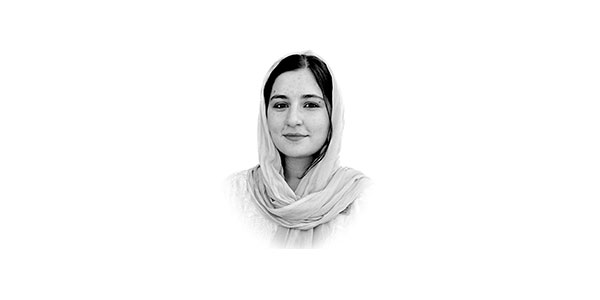Saudi Arabia’s evolving regional policy
IRAN and Saudi Arabia were the two mainstays of US foreign policy in the Middle East throughout the Cold War, but with the Iranian Revolution, this situation abruptly overturned.
The Islamic Republic of Iran sought an isolated foreign policy from the West. Since then, Tehran has been at odds with the USA and other pro-western countries in the region, like Saudi Arabia. Since the 1979 Islamic Revolution, Saudi Arabia has seen Iran as its most significant adversary in the Gulf’s quest for domination.
The issue is that Iran and Saudi Arabia are working toward incompatible geopolitical objectives. Both nations assert their dominance in the Middle East and their leadership in the Islamic world.
Iran is the top Shi’ite and Saudi Arabia is the Sunni Muslim nation. In 2016, the Saudi Interior Ministry executed the death of 47 persons on terrorism-related charges, including an executed Nimr al-Nimr who was an Al-Qaeda commander and a prominent Shia figure.
His execution sparked protests in several nations, with demonstrators storming the Saudi embassy in Tehran and setting it on fire.
Therefore, Saudi Arabia suspended diplomatic ties with Iran. Both nations then supported opposing sides in proxy conflicts across the Middle East, from Yemen to Syria and beyond.
The rivalry between Iran and Saudi Arabia for the Middle East supremacy has infiltrated practically every regional problem over the last decade.
It shattered international alliances and sustained wars throughout the region while fueling concerns about a potential direct conflict between the two powers involving the United States. Now, amid a widespread turn toward reducing tension throughout the region, both sides appear to be looking for a diplomatic off-ramp to a conflict.
Both Iran and Saudi Arabia started the Baghdad dialogue process in 2021 with the help of Iraq, holding bilateral discussions to address their security concerns in the region, after experiencing the catastrophic effects of a proxy war and the involvement of the USA in the Middle East.
In a 2021 interview on Saudi Television, Saudi Crown Prince Mohammed bin Salman advocated for an excellent and distinctive relationship with Iran.
The primary obstacles to better ties were Iran’s nuclear and ballistic missile programmes as well as its backing for regional proxies.
Saudi Arabia intended to collaborate with its neighbours in the region and throughout the world right away to find solutions to all the specific politics.
Iran also showed a positive response to opening a new chapter of engagement and collaboration. Iran expects a constructive and dialogue-oriented approach from Saudi Arabia to improve their relations.
Iran and Saudi Arabia had their fifth round of negotiations in Baghdad in April this year. This summit marked a huge step forward after about a year of talks as the two nations decided on a broad plan for restoring ties.
Yemen garnered a lot of focus throughout the conference since this round of discussion took place a few weeks after the ceasefire in Yemen, which created a doorway for peace talks between the Saudis and Houthis in Yemen. They consented to continue their discussions at a diplomatic level.
President Ebrahim Raisi and Foreign Minister Hossein Amir-Abdollahian are more enthusiastic and engaged in integrating the Arab world than any of their predecessors.
This Iranian Administration has the power to fundamentally alter Iran’s ties with its Arab neighbors, particularly Saudi Arabia.
A shift from a security track to a political one can revive diplomatic ties between Iran and Saudi Arabia by offering a rare opportunity for both nations to engage in direct diplomacy without the necessity for a mediator to resolve any outstanding issues of shared concern in the region.
Regardless of both local and global developments, both nations appear to have concluded that continuing their proxy war in the region is a zero-sum game with no clear winner.
The Kingdom’s new regional strategy to preserve a balance of power and regional stability must be understood as the reason for Saudi Arabia’s willingness to talk with Iran and unwillingness to ratify the Abraham Accords.
The recent denial of Washington’s plan to form an Arab-Israeli coalition against Iran, suggested by President Biden during his recent visit to Saudi Arabia, shows how serious Saudi Arabia is about adopting an independent regional policy.
In its desire for regional leadership, Saudi Arabia wants leverage against a rival, but Israel perceives Iran as an existential danger to its national security.
Also, most of the issues between Saudi Arabia and Israel could be settled, but there is still little room for collaboration in security.
Both situations involve Saudi Arabia playing it safe. For the time being, it has been effective in balancing these opposing stances and achieving significant objectives, specifically, a tentative de-escalation with Iran and an increasingly diverse reconciliation with Israel.
However, Riyadh may struggle to maintain its delicate balancing act if the fundamental flaws in Saudi foreign policy become more apparent because of internal and external pressures. Even still if this strategy is finally effective, Saudi Arabia could be forced to choose sides.
Depending on how the Saudi leadership assesses the risks in its surroundings, it is uncertain whether Saudi Arabia will place greater importance on its ties with Israel than Iran or vice versa.
The West’s idea of inclusive regional security infrastructure in the Middle East is just blind optimism, and the next escalation will soon follow if the problem is not resolved.
Without a strategy of détente between the two regional powers, Iran and Saudi Arabia, any hope of peace in the Middle East would remain a fantasy.
—The writer is currently working as Research Associate at Institute of Peace and Contemporary Affairs, Islamabad.










